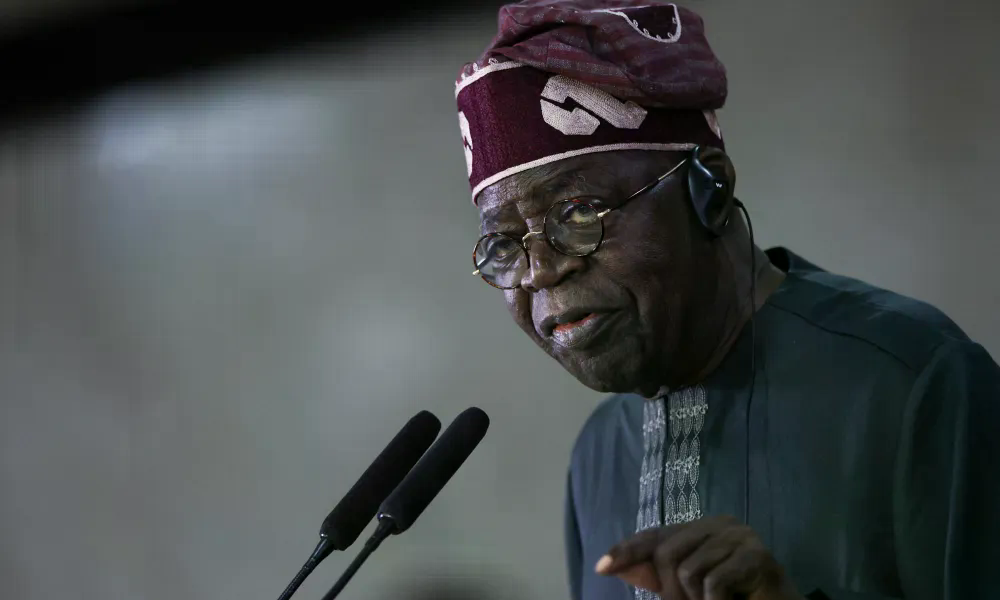
Nigeria’s president has replaced several top security officials as the country continues to face persistent violence in the conflict-ridden north and a range of ongoing security challenges. The recent personnel changes come amid heightened concerns over national stability.
The shake-up follows reports that more than a dozen military officers were arrested in September, including a brigadier general and a colonel. However, the government has denied allegations of a coup plot. In a brief statement, President Bola Tinubu confirmed the restructuring of the armed forces’ hierarchy, stating it was aimed at strengthening Nigeria’s national security framework.
According to the presidential spokesperson, three senior security officials were dismissed on Friday: Christopher Musa, chief of defence staff; Emmanuel Ogalla, chief of naval staff; and Hassan Abubakar, chief of air staff. Olufemi Oluyede, previously the chief of army staff, has been appointed as the new chief of defence staff. Shaibu, I Abbas, and SK Aneke have been named as the chiefs of army, air force, and naval staff, respectively.
The president emphasized the need for improved professionalism, vigilance, and unity within the Nigerian Armed Forces, according to the spokesperson, Sunday Dare.
Despite the military’s denial of a coup plot, local media and some analysts remain skeptical. Confidence MacHarry, a security analyst at Lagos-based consultancy SBM Intelligence, noted that military leadership reshuffles are common in Nigeria. However, he pointed out that the military has not convincingly refuted the allegations, suggesting that the changes could be an attempt to counter potential coup plotters or to punish commanders for their failure to enhance security.
The personnel changes coincide with growing unrest in Abuja, where protests erupted this week. Demonstrators took to the streets demanding the release of Nnamdi Kanu, leader of the Indigenous People of Biafra separatist group. Police responded by firing tear gas and arresting dozens of protesters.
A variety of armed groups operate across Nigeria, contributing to the complex security landscape. In the north, Boko Haram, which began its insurgency in 2009, has seen a significant resurgence this year. The group opposes Western education and seeks to impose a strict interpretation of Islamic law. Meanwhile, criminal gangs engaged in kidnapping, ransom, and looting—often referred to as bandits—are also prevalent.
Recent months have witnessed frequent attacks on military posts, road bombings, and raids on civilian communities, raising fears of a return to the high levels of insecurity experienced a decade ago. In response, the U.S. government recently approved a $346 million arms sale to support Nigeria’s efforts against insurgent and criminal groups.
Regionally, West Africa has experienced a wave of military takeovers in the past three years, with Mali, Burkina Faso, and Niger all witnessing coups. Analysts warn that this trend may continue. Senator Iroegbu, a security analyst based in Abuja, noted that such changes were anticipated and suggested that the Nigerian administration may be prioritizing regime protection over addressing broader security threats.


